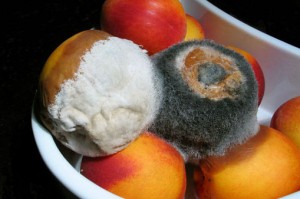Real food goes bad. It’s alive; it lives, breathes, decays and dies, just like us. It’s nature, we’re nature. That’s how it goes, and that’s how it’s supposed to go. The great circle of life. Cue Elton John, please.
 And that’s how it always was too, we grew it, raised it, picked it, caught it, killed it and kept it fresh or let it age and knew how to eat it and when to eat it by using our senses. (Remember those?)
And that’s how it always was too, we grew it, raised it, picked it, caught it, killed it and kept it fresh or let it age and knew how to eat it and when to eat it by using our senses. (Remember those?)
Like smell and sight and touch and taste. …in other words, what we did before we had apps, spinning and social media.
And that’s how we survived…until the invention of Foodiness. Foodiness has re-trained us to mistrust our senses, to ignore them and deny them, with its preservatives and packaging and processing.
Who needs to know what a fresh fish smells like, or if our cheese has gotten too old (old is the point of cheese, it’s how milk reaches immortality)?
Suddenly food has become ageless, immortal, embalmed and preserved for eternity, like King Tut, or Cher…
The point is you can’t trust Foodiness, because Foodiness doesn’t have your best interests in mind. It’s about profit, and convenience and laziness, greed and the bottom line. …everything you said you were against back when you used to smoke pot.
Real Food, on the other hand, is about nature and life and death and respect for the planet and our health. …everything that now drives you to recycle, own a Prius, or vote Democrat.
Because the mythology of Foodiness is like the mythology of the ancient Egyptians, who mummified their dead in the belief that they’d live forever in their snug, chemical-doused wrappers, like a protein bar on a shelf, quietly waiting out eternity until a harried soccer mom grabs it for her snack-deprived tot to scarf down in the mini-van.
The truth is, he’d probably be better off eating an unwrapped mummy then an unwrapped protein bar…at least the mummy started out as actual meat.
